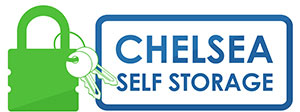Whatever your business, there will almost certainly be a need to retain and store certain documents. With auditing and archiving never going to be the most exciting, nor pleasurable, task, it can often get delayed or overlooked. All businesses, however, inevitably accumulate paper and documentation – some of it sensitive information – and need to manage it properly. Establishing a document archive process is the best way to deal with this issue.
Here are a few aspects to consider when setting up your archiving system:
Consider you may need access
When archiving, you should always consider access to the documents – wherever you physically store your boxes and documents, ensure that there is enough walking, lifting and working space for them to reached. Never stack boxes too high and place them where they can be individually accessed.
Secure offsite storage gives you room to grow
When deciding on where to store your archived documents, consider your on-going situation. On initial archiving, an amount of boxes may be able to be held on site – but, if your archiving needs are going to grow to cater for future document retention, you may want to consider a secure offsite location.
Depending upon your business, you may be storing data protection, or mandatory, documentation that requires specific security, so it is important to get this right. Your documents should be kept in a location near to your premises for accessibility, but also a secure location – so business storage facilities are ideal as they offer security and surveillance facilities in dry, clean environments.
Perform an audit and maintain up to date records
When you start your archiving, a full audit of your existing documents is vital. This is the first decision point of what needs to be kept and what can be disposed of. When you have achieved that, you can decide on the best way to retain your documents, based on their content and your need to have access to them.
Remember, that whilst the point of this exercise is to provide better organised access to your documents – and potentially save money and space – you should exercise some caution in regard to what the regulations around particular document retention are, and their value to the business – this will help you establish a ‘shelf-life’ for each document.
Sort and dispose of documents no longer required
Once audited, you can undertake a ‘purging’ exercise – double check the legal and recommended retention requirements then, those documents identified as no longer required can be disposed of in the appropriate manner. You may be able to cater for that yourself using a shredder or, it may be more pertinent to use a specialised, professional disposal company who destroy the documents securely and then recycle the materials effectively.
Use strong a durable boxes with clear labelling
If storing your retained documents in boxes, then ensure you use strong and durable boxes to provide the best protection. Ensure you clearly label each box with as much information about the contents as is feasible, to make document identification and access easier.
Whether you have just a few boxes, or considerable amounts of documentation, to be stored, secure self-storage unit facilities are a great option.
Chelsea Self Storage
Chelsea Self Storage we have 30 years experience in providing the ideal storage solutions for businesses. We understand the optimal storage methods for archived documents and records and can help you calculate the right size of unit you’ll need to maximise your budget. With some of the lowest competitive rates in the capital, we’re convinced that we can offer a file management solution that’s just right for your business.
We are conveniently located near Kensington, a short walk from the Kings Road in Fulham, and have satisfied clients right across London who can testify to our capability and customer service.
If you need to reclaim valuable office storage space then contact us today and we’ll be happy to help you archive your records safely and securely.
